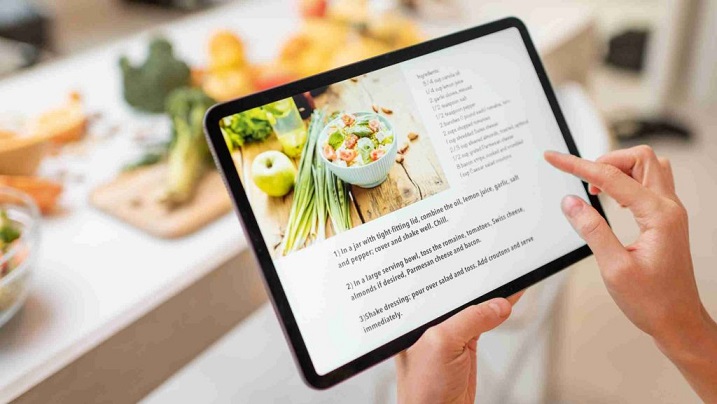It’s getting less and less common to flip through tattered and stained paper recipes in the fast-paced world of modern kitchens. Cloud-based recipe management systems are incredibly efficient and have replaced the laboriousness of traditional paper recipe management. This is not just a tech trend; it’s a revolution in cooking that changes how recipes are prepared, accessed, and stored.
There are several obvious drawbacks to using conventional paper recipe management techniques. Imagine a chef in a dinner rush, frantically sifting through a pile of jumbled documents in an attempt to find that one elusive recipe. The process’s inherent awkwardness is a big obstacle to a kitchen’s efficient operation. Paper recipes are prone to tearing, spilling, and general wear and tear from a busy cooking environment. Paper recipes are inconsistently stored and organised, which creates a chaotic environment where important information is easily forgotten or overlooked. Please see here for the ultimate in Hospitality Industry Recipe Management Solutions.
The difficulties that chefs and kitchen staff encounter are exacerbated by the laborious process of manually managing recipes. The creative process of cooking is interrupted by time-consuming tasks like updating recipes, noting changes, or making backups. It is no longer acceptable to have paper-based system inefficiencies in a profession where time is of the essence.
The dawn of a new era in culinary organisation is heralded by cloud-based recipe management solutions. The seamless experience these systems offer chefs and kitchen teams is the result of their meticulous engineering and beautiful design, which maximises efficiency. The physical constraints and weaknesses of paper are removed by the cloud, which functions as a virtual storage space, making it possible to store recipes in a safe and convenient location.
Recipes are stored synchronised and centrally in cloud-based systems, which is one of their main benefits. With the ability to access their complete recipe library from any internet-connected device, including tablets in the kitchen and laptops in the office, chefs can now prepare meals with ease. Because of their accessibility, recipes are always with the chefs, facilitating a seamless and dynamic cooking process. See this website for more great articles.
Furthermore, cloud-based systems’ accuracy extends to functions like version control and in-depth recipe analytics. Chefs are able to monitor modifications made to recipes over time, guaranteeing accountability and transparency. Chefs are empowered to make well-informed decisions regarding menu innovations and adjustments thanks to the insightful data that analytics provide about the performance and popularity of various dishes.
The intuitive functionalities and user-friendly interfaces of cloud-based recipe management systems are clear examples of their artistic design. Organising recipes is made easier with customisable search parameters, tags, and categories. In addition to increasing productivity, this degree of organisation frees up chefs to concentrate more on the artistic elements of their work rather than the administrative difficulties associated with handling recipes. Please see here for Government information.
To conclude, the culinary industry has made a significant advancement with the shift from conventional paper recipe management to cloud-based solutions. The accuracy and creative design of cloud systems take the place of paper-based methods’ awkwardness, and inconsistent nature, and think creatively in a setting that promotes culinary excellence.
